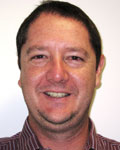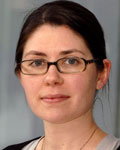Moonfish M33a—planning and executing a challenging extended-reach drilling (ERD) well in the Bass Strait
Tommy Graham A , Jenny Bransfield B , Andrew McKerron B and Sarah Robertson BA ExxonMobil Development Company Esso Australia Pty Ltd 12 Riverside Quay Southbank VIC 3006
B Esso Australia Pty Ltd 12 Riverside Quay Southbank VIC 3006
The APPEA Journal 49(2) 575-575 https://doi.org/10.1071/AJ08048
Published: 2009
Abstract
The Moonfish Field is located in the Bass Strait/Gippsland Basin, 5 km north of the Snapper Platform. The structure is an inverted fault-bounded anticlinal closure, which has been modified by the emplacement of intrusive igneous stocks (volcanics) at depth. Hydrocarbons are trapped in stacked Cretaceous to Eocene fluvial clastics, with five major and numerous minor oil-bearing reservoirs. Whilst numerous coals 1–4 m thick are found throughout the entire non-marine section of this part of the basin, several thick and laterally continuous coals are found in the Eocene section. The N-1.4 Coal is 6 m thick and the N-1.9 Coal is 8 m thick over the Moonfish structure.
keywords: Esso Australia, Bass Strait, Gippsland Basin, Snapper, Moonfish, Latrobe Group, Extended Reach Drilling (ERD), Coal (drilling), Wellbore Stability, High Inclination, Stress Cage, Equivalent Circulating Density (ECD), Non Productive Time (NPT), Drilling Optimization, Rig Upgrade, Pre Spud

Tommy Graham graduated from The University of Mississippi with a BSc in chemical engineering in 1980. He has worked for various ExxonMobil affiliates in the United States, Canada, Angola, Indonesia, Norway, and Australia for the past 28 years. He has held various drilling and completion roles, including supervisory and technical positions, as well as drilling facilities and rig design on major offshore projects. Since moving to Australia in 2007 he has worked as a drilling advisor for the Snapper-Moonfish drilling campaign. (SUT). tommy.e.graham@exxonmobil.com |

Jenny Bransfield graduated from the University of Canterbury in Christchurch, New Zealand in 2005 after obtaining a BEng (Hons) in chemical and process engineering. Jenny has four years experience in industry employed by ExxonMobil. Initially employed as a process engineer for an onshore LPG fractionation facility, Jenny then moved into a cross-site gas production co-ordination and flow assurance position. After three years Jenny joined the reservoir surveillance group responsible for reservoir management and optimisation of the three major gas fields in the Bass Strait in addition to coordinating a cross-functional team working on the Snapper-Moonfish infill-drilling program. Member: IChemE. jenny.a.bransfield@exxonmobil.com |

Andrew McKerron graduated from The University of Sydney with a BSc (Hons) in geology in 1992. He has worked for various ExxonMobil affiliates in Australia, Indonesia and the United States for the past 17 years, in a wide range of geological settings and across a variety of business stages. Since 2006 he has been the principal geoscientist for the Snapper and Moonfish Fields. His current role involves seismic interpretation, stratigraphy and geological modelling to identify drilling opportunities for the current and future Snapper-Moonfish drilling programs. Member: PESA and AAPG. andrew.mckerron@exxonmobil.com |

Sarah Robertson graduated from Monash University in 2005 with a BEng (Hons) in mechanical engineering and a BSC in mathematics and physics. Sarah commenced employment with ExxonMobil as a subsurface engineer in 2006 and coordinated the Bass Strait Wireline operations for eighteen months before joining the Snapper-Moonfish drilling team as the completions engineer. After designing the first 5 completions for the program, including two of the extended reach wells, Sarah has moved into the reservoir technology group as the reserves coordinator for ExxonMobil’s Australia and Papua New Guinea assets. She is a Member: Engineers Australia and SPE. sarah.robertson@exxonmobil.com |


